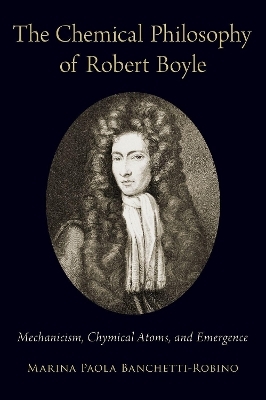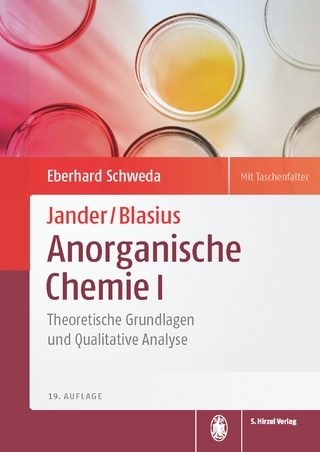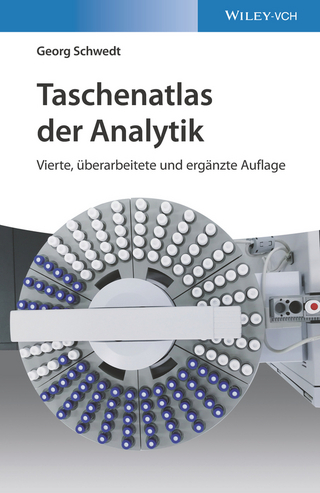
The Chemical Philosophy of Robert Boyle
Oxford University Press Inc (Verlag)
978-0-19-750250-1 (ISBN)
Robert Boyle (1627-1691) believed that a reductionist conception of the mechanical philosophy threatened the heuristic power and autonomy of chemistry as an experimental science. While some historical and philosophical scholars have examined his nuanced position, understanding the chemical philosophy he developed through his own experimental work is incredibly difficult even for experts in the field. In The Chemical Philosophy of Robert Boyle, Marina Paola Banchetti-Robino energetically explains Boyle's ideas in a whole new light and proposes that Boyle regarded chemical qualities as non-reducible dispositional and relational properties that emerge from, and supervene upon, the mechanistic structure of chymical atoms. Banchetti-Robino demonstrates that these ideas are implicit in Boyle's writing, making his philosophical contributions crucial to the fields of both philosophy and chemistry.
The arguments presented are further strengthened by a detailed mereological analysis of Boylean chymical atoms as chemically elementary entities, which establishes the theory of wholes and parts that is most consistent with an emergentist conception of chemical properties. More generally, this book examines the way in which Boyle sought to accommodate his complex chemical philosophy within the framework of the 17th century mechanistic theory of matter. Banchetti-Robino conceptualizes Boyle's experimental work as a scientific research programme, in the Lakatosian sense, to better explain the positive and negative heuristic function of the mechanistic theory of matter within his chemical philosophy.
The Chemical Philosophy of Robert Boyle actively engages with the contemporary and lively debates over the nature of Boyle's ideas about structural chemistry, fundamental mechanistic particles and properties, the explanatory power of subordinate causes, the complex relation between fundamental particles, natural kinds, and unified chemical wholes. The book is a rich historical account that begins with the dominant paradigms of 16th and 17th Century chemical philosophy and takes readers all the way through to the 21st Century.
Marina Paola Banchetti-Robino is Associate Professor of Philosophy at Florida Atlantic University. Her work has appeared in Synthese, Husserl Studies, Philosophy East & West, Continental Philosophy Review, The Review of Metaphysics, and Foundations of Chemistry. She is co-editor of The Philosophies of Environment and Technology and of Shifting the Geography of Reason: Science, Gender, and Religion.
Preface
Introduction
1. Chemical Philosophy in the 16th and 17th Centuries: Vitalism, Paracelsian Alchemy, and Aristotelian Hylomorphism
1.1 The Vitalistic Character of Renaissance Alchemy
1.2 The Scholastic Theory of Substantial Form
1.3 Paracelsian Spagyria and the Tria Prima
1.4 Semina Rerum, Minima Naturalia, and Vitalistic Corpuscularianism
1.5 Daniel Sennert's Structural Hylomorphism and Atomicity as a "Negative-Empirical" Concept
1.6 Jan Baptista van Helmont and the Chemical Interpretation of Spirit and Ferment
2. Chemical Philosophy vs. Rationalistic Mechanicism: The Heuristic Limits of Cartesianism for Chymistry
2.1 The Cartesian Rejection of Substantial Forms
2.2 Pierre Gassendi and the Reformation of Epicurean Atomism
2.3 The Limitations of the Cartesian Project for Chymistry and Chemical Philosophy
2.4 Mechanistic Corpuscularianism and Experimental Natural Philosophy
2.5 Boyle's Relation to the Cartesian Project in Natural Philosophy
2.6 The Negative and Positive Heuristic Functions of the Mechanical Philosophy in Boyle's Scientific Research Programme
3. The Ontological Complexity of Boyle's Corpuscular Theory: Microstructure, Natural Kinds, and Essential Form
3.1 The Sceptical Chymist: Against Scholastics and Paracelsians
3.2 Boyle's Corpuscular Theory of Matter
3.3 Composition vs. Microstructure
3.4 Taxonomical Classification, Natural Kinds, and Essential Form
3.5 The Empirical Nature of Essential Form: The Reduction to the Pristine State
4. Boyle's View of Chemical Properties as Dispositional, Relational, and Emergent Properties
4.1 The Hierarchy of Properties in Boyle's Chemical Ontology
4.2 Sensible Properties as Dispositional and Relational
4.3 Chemical Properties as Dispositional and Relational
4.4 Chemical Properties as Emergent and Supervenient
4.5 Supervenience, Non-Summative Difference, and Underdetermination
4.6 Cosmical Qualities as Dispositional and Relational Properties
5. The Relation between Parts and Wholes: The Complex Mereology of Chymical Atoms
5.1 Boylean Chymistry as Mereological
5.2 Continuous vs. Contiguous Integral Wholes
5.3 Integral Parts and Essential Parts
5.4 Aquinas, Abelard, and Boyle on Substantial Unity
5.5 The Mereology of Boyle's Chymical Atoms as Chemically Elementary Entities
5.6 A Brief Excursion into the Mereology of Epicurean Semantics
Concluding Remarks
Bibliography
Index
| Erscheinungsdatum | 23.07.2020 |
|---|---|
| Verlagsort | New York |
| Sprache | englisch |
| Maße | 163 x 239 mm |
| Gewicht | 454 g |
| Themenwelt | Naturwissenschaften ► Chemie ► Analytische Chemie |
| ISBN-10 | 0-19-750250-4 / 0197502504 |
| ISBN-13 | 978-0-19-750250-1 / 9780197502501 |
| Zustand | Neuware |
| Haben Sie eine Frage zum Produkt? |
aus dem Bereich


